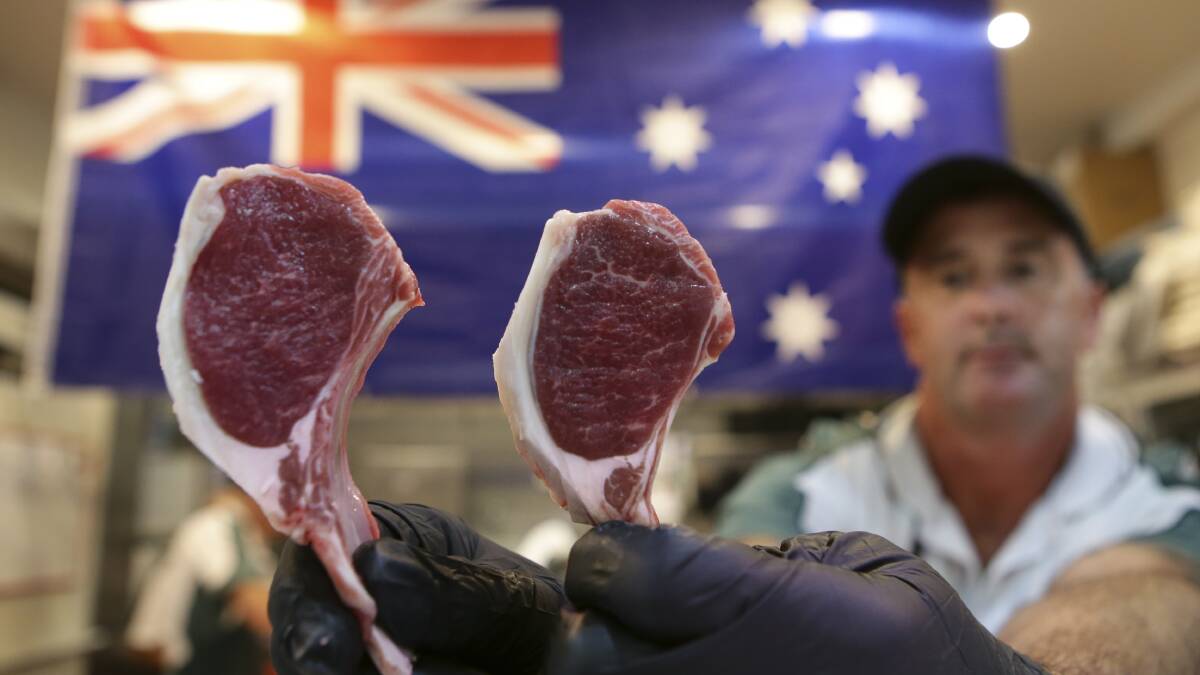
If the sheepmeat sector can replicate with India what it did when the China-Australia Free Trade Agreement came into force in 2015, the industry could soar to new heights.
Subscribe now for unlimited access to all our agricultural news
across the nation
or signup to continue reading
This is according to top industry minds, who believe India has the potential to become Australia's "new China" after the interim Australia-India Economic Cooperation and Trade Agreement was announced in April.
India is a market of over 1.3 billion people with a young population and growing middle class, and Australia's two-way trade is already valued at more than $24 billion annually.
Sheepmeat tariffs, originally sitting at 30pc, will be eliminated, wool will have its 2.5pc tariffs dropped while the 10pc tariff on raw skins and hides was immediately wiped out.
ANZ head of agribusiness Michael Whitehead said sheepmeat, which only currently commands a relatively small proportion of the Indian market, was a major winner of the new FTA.
Over the past five years, Australia has only exported 111 tonnes of sheepmeat to India, with premium cuts making up the majority of this trade.
And although this focus will undoubtedly continue, with Australian sheepmeat helping meet the ongoing import demand in India for quality product servicing 5-star catering, Mr Whitehead said there is now more opportunity amongst another portion of the population.
"With over 1.3 billion people there is a large component of that population eating meat," Mr Whitehead said
"Apart from the growing middle class, the Muslim community will be incredibly important - there is a huge opportunity to open up the consumption of Australian sheepmeat."
A large proportion of Indians are either Muslim or Hindus and although data shows vegetarianism is popular, meat-eaters are amongst them.
According to Pew Research Centre, eight in 10 Indians limit meat in their diets, and four in 10 consider themselves vegetarian.
All of India's most widely practiced religions, such as Muslim and Hinduism, have dietary laws and traditions.
Hindus may avoid eating beef because cows are traditionally viewed as sacred.
Muslim teachings, meanwhile, prohibit pork.
Diets, Mr Whitehead believes, that are very open for an increase in sheepmeat consumption.
ALSO READ:
But he admitted there is a lot of hard work that needs to be done.
"It will take work, but the Australian sheep industry has shown over the years how good it is at promoting its product," he said.
"We know the sheepmeat industry can do that well - just look at the increase of sheepmeat into China and the US.
"The industry needs to reflect on what happened with the opening of the China market over the last decade and how much Australian agri-exports, including meat, was going in.
"Then, as the market started to open, how much work was done by Australia and how much sheepmeat is going in now....and look at replicating that with India to really benefit the industry."
Thomas Elders Markets (TEM) analyst Matt Dalgleish said the trade deal has opened the door to a huge market for Australian sheep and goat meat.
"The team at TEM have been quite vocal in recent years outlining the strong supply/demand fundamentals facing the Australian sheep and goat meat producer over the next decade given that Australian and Kiwi producers dominate the global export supply and demand continues to grow for sheep and goat meat from many export destinations," Mr Dalgleish said.
"The deal with India encouraging growth in exports for sheep and goat meat products further adds to the already strong outlook for this sector."
Start the day with all the big news in agriculture! Sign up below to receive our daily Farmonline newsletter.


